Ever feel like your mood is all over the place, your energy’s out of whack, or your skin’s just not cooperating? It might not be your schedule—or even your stress. It could be your hormones. And believe it or not, what you eat plays a major role in how balanced—or chaotic—those hormones are.
The truth is, some foods help your hormones do their job like a well-oiled machine. Others? They throw everything out of sync.
Let’s dig into the delicious (and not-so-delicious) truths behind what your hormones actually want you to eat—and what they’d really rather you didn’t. Whether you’re struggling with fatigue, mood swings, acne, or irregular cycles, these everyday food choices could make all the difference.
1. Balance: Flaxseeds
Flaxseeds, tiny powerhouses packed with lignans, help balance estrogen levels in the body. These seeds are not only rich in fiber but also provide omega-3 fatty acids, supporting heart and hormonal health.
A daily sprinkle on oatmeal or smoothies offers a nutty flavor and health benefits. Additionally, flaxseeds may aid in reducing menopausal symptoms and improving menstrual regularity.
Whether ground or whole, incorporating flaxseeds into your diet can be a simple step towards hormonal harmony.
2. Balance: Soy Products
Soy products, like tofu and edamame, are renowned for their hormone-balancing isoflavones. These plant compounds mimic estrogen, potentially alleviating symptoms of menopause.
Incorporating soy into your meals can be both delicious and health-promoting. From stir-fries to salads, soy products offer versatility and nutritional benefits.
While some may worry about overconsumption, moderate intake is generally considered safe and beneficial for most individuals.
3. Balance: Broccoli
Broccoli, a cruciferous vegetable, is rich in indole-3-carbinol, which assists in estrogen metabolism. This powerhouse veggie can help detoxify the body and balance hormone levels.
Whether steamed, roasted, or raw, broccoli is a versatile addition to any meal. Its crunchy texture and earthy flavor make it a favorite for many.
4. Balance: Salmon
Salmon is a fatty fish rich in omega-3 fatty acids, crucial for hormonal health. These healthy fats support the production of hormones and reduce inflammation. A serving of salmon not only delights the palate but also nourishes the body.
Grilled, baked, or smoked, salmon provides a satisfying meal with numerous health benefits.
5. Balance: Avocado
Avocado, a creamy and delicious fruit, is known for its healthy fats and nutrient density. These beneficial fats support hormone production and balance blood sugar levels.
Enjoying an avocado toast or adding it to salads enhances culinary experiences and boosts health. Its rich texture and subtle flavor complement a variety of dishes.
6. Balance: Sweet Potatoes
Sweet potatoes, rich in beta-carotene and fiber, are excellent for hormonal health. They provide necessary nutrients like vitamin A, which plays a role in hormone production.
Their natural sweetness and smooth texture make them a comforting side dish. Additionally, sweet potatoes assist in regulating blood sugar levels, further supporting hormonal balance.
7. Balance: Walnuts
Walnuts, packed with omega-3 fatty acids and antioxidants, promote hormonal balance and reduce inflammation. These nuts offer a crunchy texture and rich flavor, making them a delightful snack or salad addition.
Consuming walnuts can support heart health, enhance mood, and assist in hormone regulation. Their unique nutrient profile includes essential minerals like magnesium, which further aid in maintaining hormonal equilibrium.
8. Balance: Quinoa
Quinoa, a protein-rich grain, is a fantastic option for hormonal health. It contains essential amino acids that support hormone production and balance.
With its nutty flavor and fluffy texture, quinoa is a versatile base for salads, bowls, and side dishes.
9. Balance: Chia Seeds
Chia seeds, rich in omega-3 fatty acids, fiber, and antioxidants, are a boon for hormonal balance. These tiny seeds swell when soaked, creating a gel-like texture perfect for puddings and smoothies. Their neutral flavor pairs well with various ingredients, offering endless culinary possibilities.
Chia seeds are a small but mighty ally in maintaining hormonal harmony.
10. Disrupt: Refined Sugar
Refined sugar can wreak havoc on hormonal health, leading to insulin resistance and inflammation. It’s often found in processed foods, making it crucial to read labels and choose natural sweeteners.
Reducing sugar intake can positively impact energy levels and overall well-being. Opt for healthier alternatives like honey or maple syrup to satisfy sweet cravings without the negative effects.
11. Disrupt: Caffeine
Caffeine, found in coffee and tea, can interfere with hormone balance, particularly cortisol and estrogen. Excessive consumption may lead to increased stress and disrupted sleep, affecting hormonal health.
Moderation is key, as small amounts can offer benefits like improved alertness and metabolism. Being mindful of caffeine intake and balancing it with other healthy habits supports overall hormonal well-being.
12. Disrupt: Alcohol
Alcohol can disrupt hormonal balance, particularly affecting estrogen and testosterone levels. Excessive intake may lead to weight gain, mood swings, and liver issues, all of which can affect hormones.
Enjoying an occasional glass of wine with meals can be part of a healthy lifestyle when balanced with other nutritious choices. Mindful drinking contributes to hormonal harmony.
13. Disrupt: Processed Foods
Processed foods, often high in unhealthy fats, sugars, and additives, can disrupt hormonal balance. These foods can lead to inflammation and insulin resistance, affecting overall health.
Cooking at home with fresh ingredients allows for better control over nutritional content. Incorporating more fruits, vegetables, and whole grains supports hormonal equilibrium.
14. Disrupt: Dairy Products
Dairy products can impact hormonal balance, especially in those sensitive to hormones present in milk. For some, dairy consumption may lead to acne or digestive issues.
Choosing organic and hormone-free options can mitigate some negative effects. Also, exploring dairy alternatives like almond or oat milk can provide similar tastes without disrupting hormones.
15. Disrupt: Red Meat
Red meat, when consumed in excess, can affect hormone levels due to its saturated fat content. Opting for lean cuts and grass-fed options can minimize negative impacts. Moderation is essential, as red meat provides valuable nutrients like iron and B vitamins.
Including a variety of protein sources like fish and plant-based options supports balanced nutrition.
16. Disrupt: Fried Foods
Fried foods, often high in unhealthy fats and calories, can disrupt hormonal balance and contribute to weight gain. These foods may lead to inflammation and insulin resistance, affecting overall health.
Choosing baked or grilled alternatives can provide similar flavors without negative effects.
17. Disrupt: Artificial Sweeteners
Artificial sweeteners, despite being calorie-free, can interfere with hormonal balance by altering gut health and insulin response. These sugar substitutes may lead to cravings and weight gain, despite their low-calorie nature.
Choosing natural sweeteners like honey or stevia can be a healthier alternative. Being cautious with artificial sweetener consumption supports better hormonal health.
18. Disrupt: High-Sodium Foods
High-sodium foods can lead to water retention and affect blood pressure, indirectly impacting hormonal balance.
Processed snacks and fast foods are often culprits of excessive salt. Choosing fresh, home-cooked meals helps control sodium intake. Herbs and spices can enhance flavor without the need for extra salt.
Balancing salt intake with a nutritious diet contributes to overall vitality.
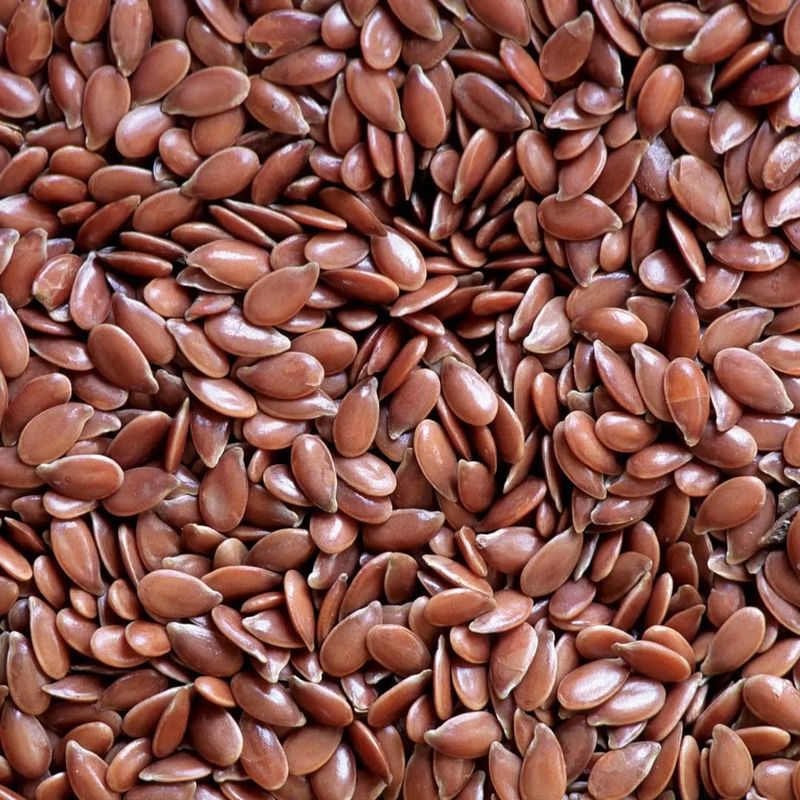
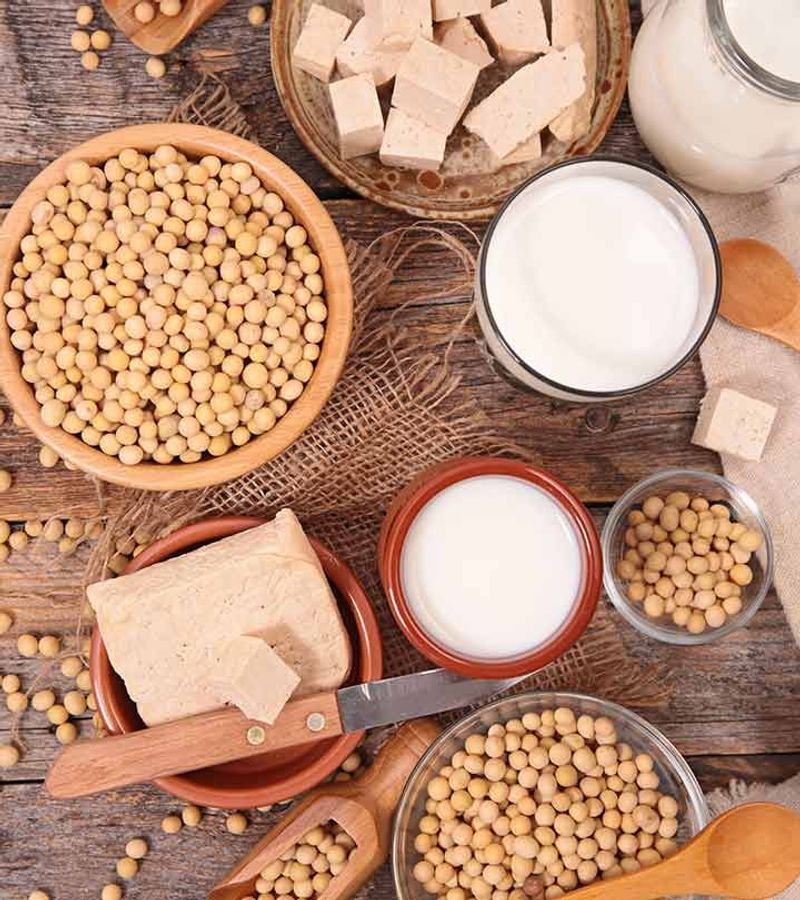
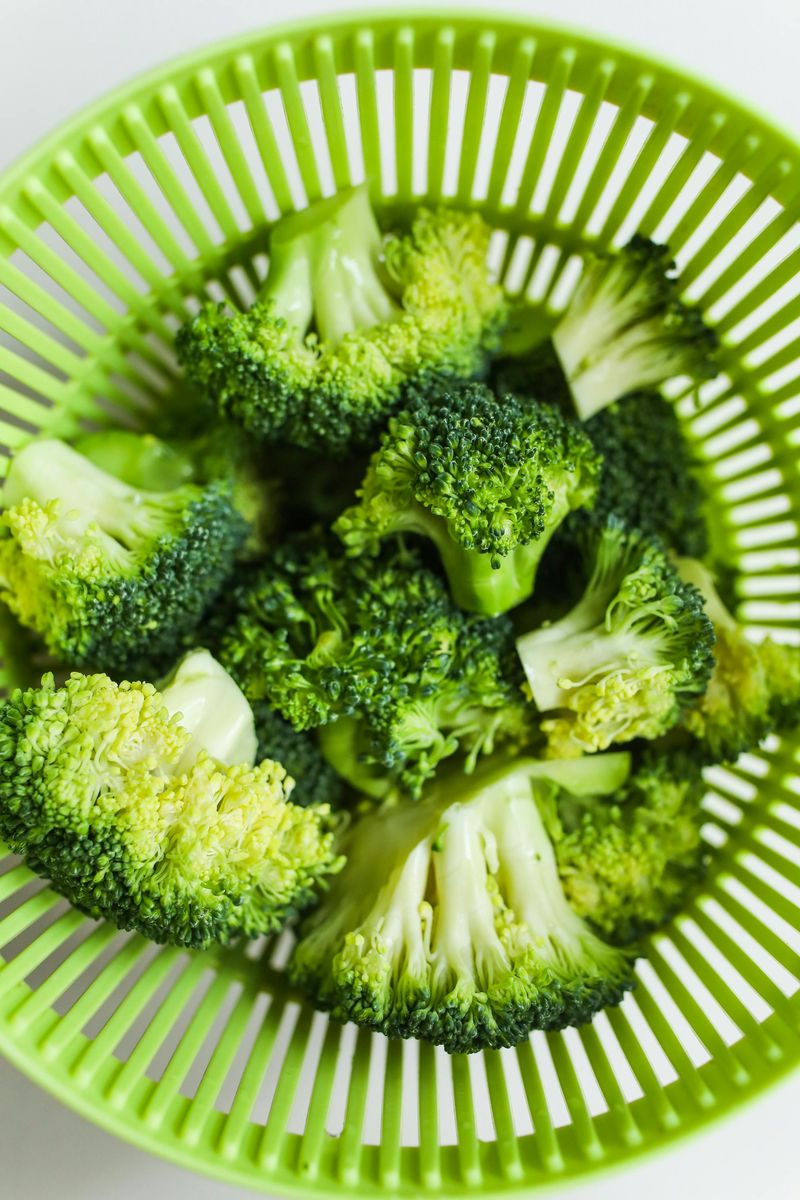

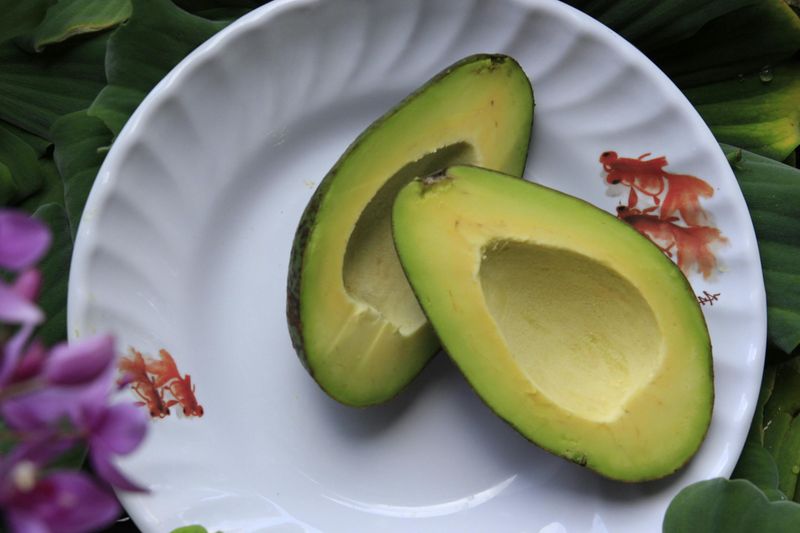


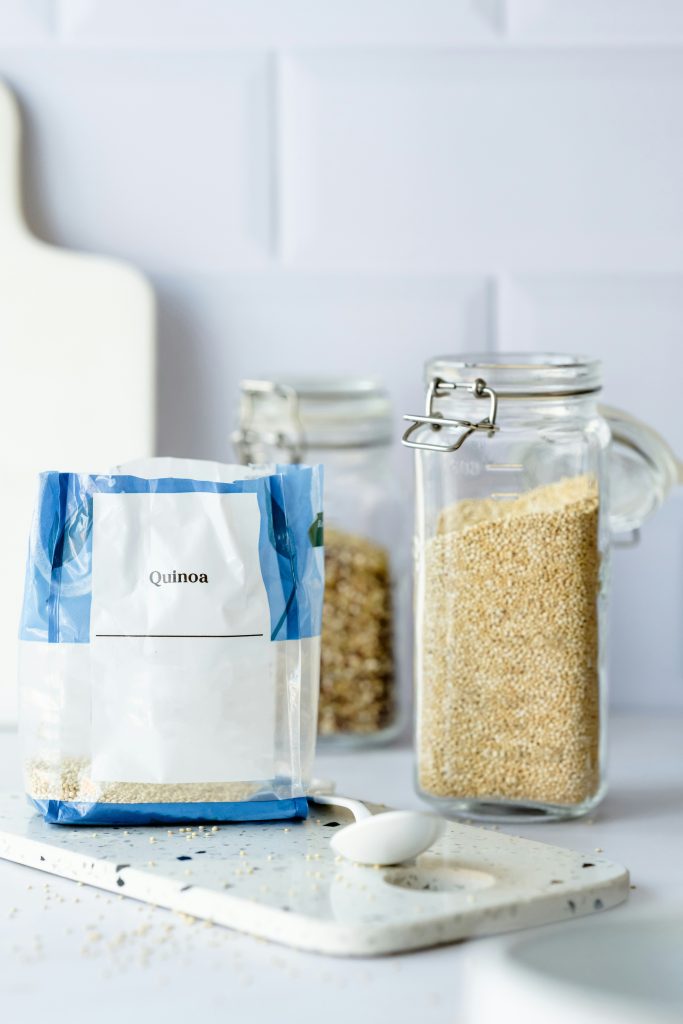
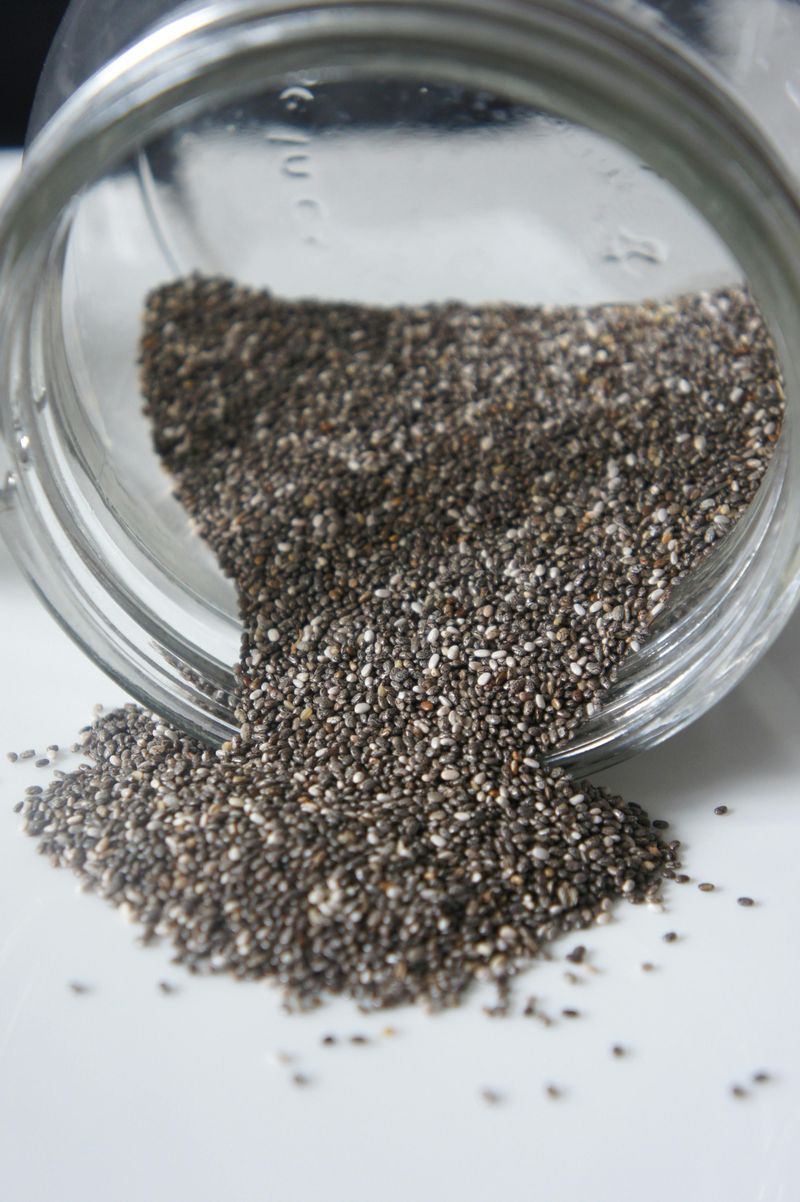









Leave a comment